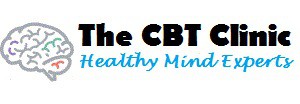A panic attack goes from 0 to 100 in an instant. It’s halfway between feeling like you’ll faint and feeling like you’ll die.
What are Panic Attacks?
A ‘panic attack’ can be defined as a sudden onset of anxiety about what is going on in your own body (i.e. a fear of our own physical sensations. A panic attack is normally defined as a mis-interpretation by the mind about physical symptoms experienced by the body, for example:
Person 1:
Physical Symptom: Increase heart rate.
The Minds Interpretation: I’m having a heart attack.
Person 2:
Physical Symptom: Feeling light headed.
The Minds Interpretation: I’m going to faint.
The term panic disorder is used when people either experience recurrent panic attacks or when they develop a constant fear of developing a panic attack.
What are the common symptoms of Panic Anxiety?
Those who experience a panic attack often experience physical sensations such as a pounding heart, shortness of breathe, tingling sensations, sweating, trembling, dizziness, chills or hot flushes, nausea, chest pain. During an initial panic attack people experience these physical symptoms (which can be extremely intense and unpleasant) and misinterpret them in a catastrophic manner. Hence, they believe they are having a heart attack, losing control or going mad. They inevitably feel a sense of impending doom.
Sometimes attacks are linked to specific situations (such as getting on a train, plane or bus, being near deep water, open fields, being in lifts, or when sleeping). It is quite common that people will avoid situations in which they encountered their first panic attack.
Physical sensations are our body’s way of preparing us for a threat therefore we will either run away or be prepared to attack. This “fight or flight response” is an evolutionary mechanism that has enabled us to survive. Today we no longer experience immediate threat from predators nor do we need to hunt prey. When we experience symptoms of anxiety this is our fight or flight response kicking in and means that our body is functioning well and is ready to protect us. However, today’s stressors do not require this level of protection and therefore we are left with uncomfortable and often distressing physical sensations.
When we feel this uncomfortable, we understandably want to protect ourselves from our catastrophic interpretations (of physical symptoms of anxiety) and will often start to check in with our body to see how we are feeling, avoid situations which may provoke these feelings, or we will do things that we believe make is feel better for example carrying water, taking rescue remedy, being on the lookout for escape routes, loosening clothing and trying to distract ourselves (also known as Distraction & Safety Behaviours).
These may seem like good short term strategies however longer term they can be unhelpful as they assist in keeping the cycle of panic going.
Can CBT Therapy be used for Panic Attacks?
Cognitive Behavioural Therapy (CBT) is the treatment of choice for mild to moderate Panic Disorder and if symptoms are severe then CBT has a greater effect when combined with medication.
Guidelines produced by National Institute of Clinical Excellence (NICE) recommend Cognitive Behavioural Therapy as the effective psychological treatment to overcome Panic Anxiety, and it is why CBT is now a recommended choice of treatment by GP’s and Health Practitioners . According to ‘best evidence’ cognitive behavioural therapy not only has the best outcomes for the treatment of Panic Anxiety but in follow up studies it has the best record for maintaining the gains in cognitive behavioural treatment in the long-term too.
We are a pure cognitive behavioural therapy service based in Nottingham and all our CBT Experts are highly skilled and have helped 100’s of clients overcome Panic Anxiety. So don’t suffer in silence, call us and start making the changes today!






